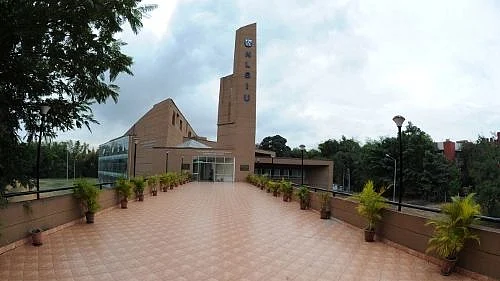Engaged in a war of words with the Consortium of National Law Universities, the National Law School of India University, Bangalore (NLSIU) has decided to completely withdraw from the Common Law Admission Test 2020, while adding that the Consortium had failed to take into account any of the suggestions provided by NLSIU to ensure the smooth conduct of admissions this year.
In a statement dated 6 September, NLSIU said that it had no option but to withdraw from the consortium following the latter’s recent statements.
“No member of the University, including the Vice Chancellor or any member of staff shall hereafter participate in CLAT 2020 in any manner, administratively or otherwise.”NLSIU
On 3 September, the National Law School of India University, Bangalore had announced that it would not accept CLAT 2020 scores for admissions this year and would conduct its own home-based National Law Aptitude Test (NLAT) on 12 September.
According to NLSIU, it had decided to conduct a separate test in order to avoid a ‘zero year.’
What did the Consortium of NLUs say in its statement?
In a meeting held on 5 September, the Governing Body of the Consortium of National Law Universities held that the decision of National Law School of India University, Bangalore Vice Chancellor Professor Sudhir Krishnaswami to hold a separate exam was ‘unilateral’ and had violated “bye-laws and objectives” of the Consortium.
The Consortium of NLUs had also “unanimously resolved to divest” Professor Sudhir Krishnaswami of his functions as the Secretary-Treasurer of the group, as it had found a ‘conflict of interest’ between his post and his decision to hold separate exams for NLSIU.
The Consortium also decided to shift its Secretariat from NLSIU, Bangalore to the NALSAR University of Law, Hyderabad.
What is NLSIU’s response?
The National Law School of India University, Bangalore, claimed that decisions made by the Consortium in its last meeting have no legal basis as NLSIU neither violated any bye-laws or objectives of the body, nor acted in a manner that could give rise to a conflict of interest.
The Quint had earlier quoted a Vice Chancellor of an NLU, who claimed that NLSIU Bangalore could lose its membership of the consortium if it decided to go ahead of separate entrance tests.
NLSIU, in its statement, also said that “the General Body had no legal authority under the Memorandum of Association or the Bye-laws to adopt a resolution removing NLSIU from the Consortium.”
What were the suggestions made by NLSIU?
In its statement, the National Law School of India University, Bangalore said that it had repeatedly expressed concern over the delay in conduct of CLAT 2020 and even suggested the following measures, which it claims the Consortium had failed to consider.
- Carving out an exception for NLUs to design their own admission process for 2020-21 as a single national examination may not be feasible in 2020
- Allowing for CLAT 2020 to be conducted in two or more series so that Universities may choose either the earlier or later date series
- Allowing for individual NLUs to conduct an examination, permitting CLAT-enrolled candidates to appear for a separate examination with no further need for registration or fee payment.
According to the NLSIU statement, these options were “repeatedly rejected by the Executive Committee of the Consortium of NLUs.” They say that the Consortium was unwilling to confirm the date for CLAT 2020, and that the decisions to postpone CLAT on 5 August and 27 August were “not taken unanimously as has previously been reported.”
